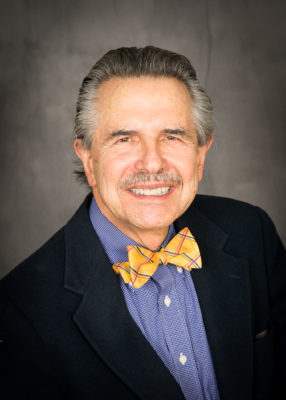Obese children who regularly participate in CHOC’s mobile asthma program could realize good control of their asthma, a retrospective study of more than 1,200 patients reveals.
Study findings showed no difference in the time it took for morbidly obese children and children with normal weights to reach asthma control – so long as they didn’t exceed 90 days between Breathmobile visits.
Dr. Stanley Galant, CHOC allergist/immunologist and Breathmobile medical director, presented these findings at the American Academy of Allergy, Asthma & Immunology (AAAAI) recent annual meeting. This work, “Can asthma be well controlled with NAEPP guideline care in morbidly obese children? The Breathmobile,” was also published in the Annals of Allergy, Asthma & Immunology.
The study examined 1,204 children ages 3 to 18 who were diagnosed by a physician with asthma between 2003 and 2012. Of the patients, more than half were considered overweight, obese or morbidly obese.

About 80 percent of Breathmobile patients achieved well-controlled asthma by their third visit. Additionally, participants across all body mass index (BMI) categories saw at least a 60 percent reduction in the likelihood of emergency department visits, hospitalizations, school absences and exercise limitations, even without a change in their BMIs.
CHOC’s Breathmobile is the only mobile asthma clinic dedicated to serving preschool and school-aged children in Orange County. An important community service, it removes barriers for children and their families who may be unable to travel or pay for preventive asthma care.
The Breathmobile’s two 36-foot RV-style clinics travel to 22 schools and community sites providing asthma care, diagnosis and education. Each location is visited every four to six weeks, providing children with comprehensive follow-up care from a familiar team until their asthma is controlled.
In his presentation, Dr. Galant attributed the Breathmobile’s success to cultural compatibility; patient access to community-based specialty care; adequate education for self-management; and most important, continuity of care, particularly for patients considered morbidly obese.




